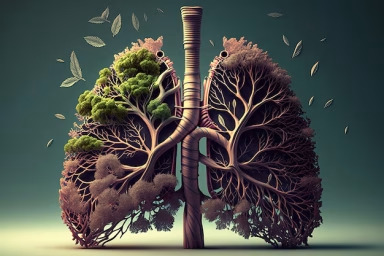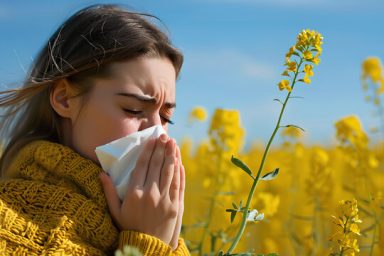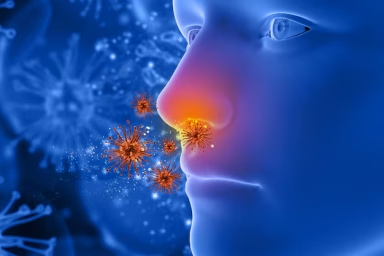- Home
- About Us
- Services
- Treatments
- Acid Reflux
- Allergic Rhinitis
- Alcoholic Fatty Liver
- Ankylosing Spondylitis
- Anxiety / Stress
- Arthritis
- Asthma
- Cervical Spondylitis
- Celiac Infection
- Colitis
- Constipation
- Dermatitis
- Detox Programme
- Diabetes (Madhumeha)
- Hair Fall
- Headache
- Hormonal Imbalance
- Hypertension
- Insomnia
- Irritable Bowel Syndrome
- Lungs Disease
- Migraine
- Neurological Disorder
- Non Alcoholic Fatty Liver
- Obesity Management
- Pain Management
- PCOD
- PCOS
- Sciatica Pain
- Sinusitis
- Skin Disorder
- Slip Disc
- Stress Management
- Thyroid
- Weight Management
- Techno-Ayurveda
- Media
- Blog
- Contact Us

Sinusitis Treatment
Understanding Sinusitis
Sinusitis is an inflammation or infection of the sinuses, the air-filled cavities located behind the forehead, cheeks, and eyes. It occurs when the sinus lining becomes swollen due to infections, allergies, or irritants, blocking the normal mucus drainage. Symptoms include nasal congestion, facial pain, headaches, and thick nasal discharge. Acute sinusitis typically lasts for a few weeks, while chronic sinusitis can persist for months. Treatment involves relieving congestion, reducing inflammation, and addressing the underlying cause, such as infections or allergies.
Symptoms of Sinusitis
1. Facial Pain or Pressure
2. Nasal Congestion
3. Runny Nose
4.Coughing
5.Headache
Common Causes of Sinusitis

Respiratory Infections
Respiratory infections due to sinusitis occur when blocked sinuses lead to mucus buildup, creating an environment for bacterial or viral infections. This can cause symptoms like cough, fever, and difficulty breathing.

Allergies
Sinusitis can trigger allergies by causing inflammation in the nasal passages, making them more sensitive to allergens like pollen, dust, and pet dander. This exacerbates symptoms such as sneezing, congestion, and itching.

Nasal Polyps
Nasal polyps are soft, painless growths that can develop due to chronic sinusitis. They form when prolonged inflammation in the nasal passages and sinuses causes tissue swelling, leading to blocked airways.

Deviated Septum
A deviated septum, where the nasal septum is off-center, can contribute to sinusitis by obstructing sinus drainage. This blockage leads to increased inflammation, difficulty breathing, and frequent sinus infections.

Airborne Irritants
Sinusitis can be triggered by airborne irritants like dust, smoke, pollution, and chemicals. These irritants inflame the nasal passages, leading to congestion, swelling, and blockage of sinus drainage, causing infections.

Dental Issues
Sinusitis can result from dental issues, particularly upper tooth infections. Infected teeth near the sinuses can spread bacteria, leading to sinus inflammation, congestion, and sometimes, painful sinus pressure or headaches.

Immune System Compromises
Chronic sinusitis can compromise the immune system by causing persistent inflammation and frequent infections. This weakens the body's natural defense mechanisms, making it more susceptible to additional infections and slower recovery.
FAQs of Sinusitis
Sinusitis is an inflammation or infection of the sinuses, which are air-filled cavities located in the skull. It can be caused by a viral, bacterial, or fungal infection, or due to allergies or structural issues in the nasal passages. Symptoms include facial pain, nasal congestion, headache, and postnasal drip.
Sinusitis can be caused by:
- Viral infections, such as the common cold
- Bacterial infections
- Allergies (e.g., pollen, dust)
- Nasal polyps or structural issues in the nose (like a deviated septum)
- Fungal infections (rare, but possible in immunocompromised individuals)
The duration of sinusitis depends on the type:
- Acute sinusitis typically lasts up to 4 weeks.
- Subacute sinusitis can last 4 to 12 weeks.
- Chronic sinusitis lasts for 12 weeks or more, and can be a long-term condition.
Common symptoms of sinusitis include:
- Nasal congestion or blockage
- Thick, discolored nasal discharge
- Facial pain or pressure (especially around the eyes, cheeks, or forehead)
- Headache
- Loss of smell or taste
- Cough, often worse at night
- Fatigue
Treatment depends on the cause of sinusitis:
- For viral sinusitis, rest, hydration, and over-the-counter medications (e.g., decongestants, pain relievers) may help.
- For bacterial sinusitis, a doctor may prescribe antibiotics if the infection is severe or lasts more than 10 days.
- For chronic sinusitis, treatment might include nasal corticosteroids, saline nasal irrigation, or surgery to correct structural issues.
